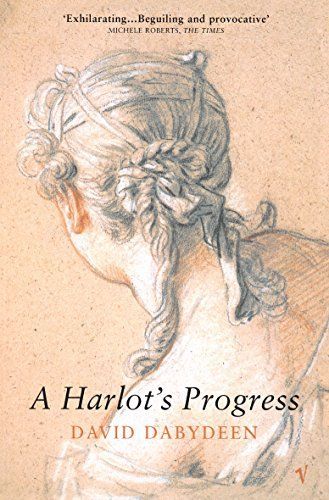
A Harlot's Progress
A HARLOT'S PROGRESS reinvents William Hogarth's famous painting of 1732 which tells the story of a whore, a Jewish merchant, a magistrate and a quack doctor bound together by sexual and financial greed. Dabydeen's novel endows Hogarth's characters with alternative potential lives, redeeming them for their cliched status as predators or victims. The protagonist - in Hogarth, a black slave boy, in Dabydeen, London's oldest black inhabitant - is forced to tell his story to the Abolitionists in return for their charity. He refuses however to supply parade of grievances, and to give a simplistic account of beatings, sexual abuses, etc. He will not embark upon yet another fictional journey into the dark nature of slavery for the voyeuristic delight of the English reader. Instead, the old man ties the reader up in knots as deftly as a harlot her client: he spins a tale of myths, half-truths and fantasies; recreating Africa and eighteenth-century London in startlingly poetic ways. What matters to him is the odyssey into poetry, the rich texture of his narrative, not its truthfulness. In this, his fourth novel, David Dabydeen opens up history to myriad imaginary interpretations, repopulating a vanished world with a strange, defiantly vivid and compassionate humanity.